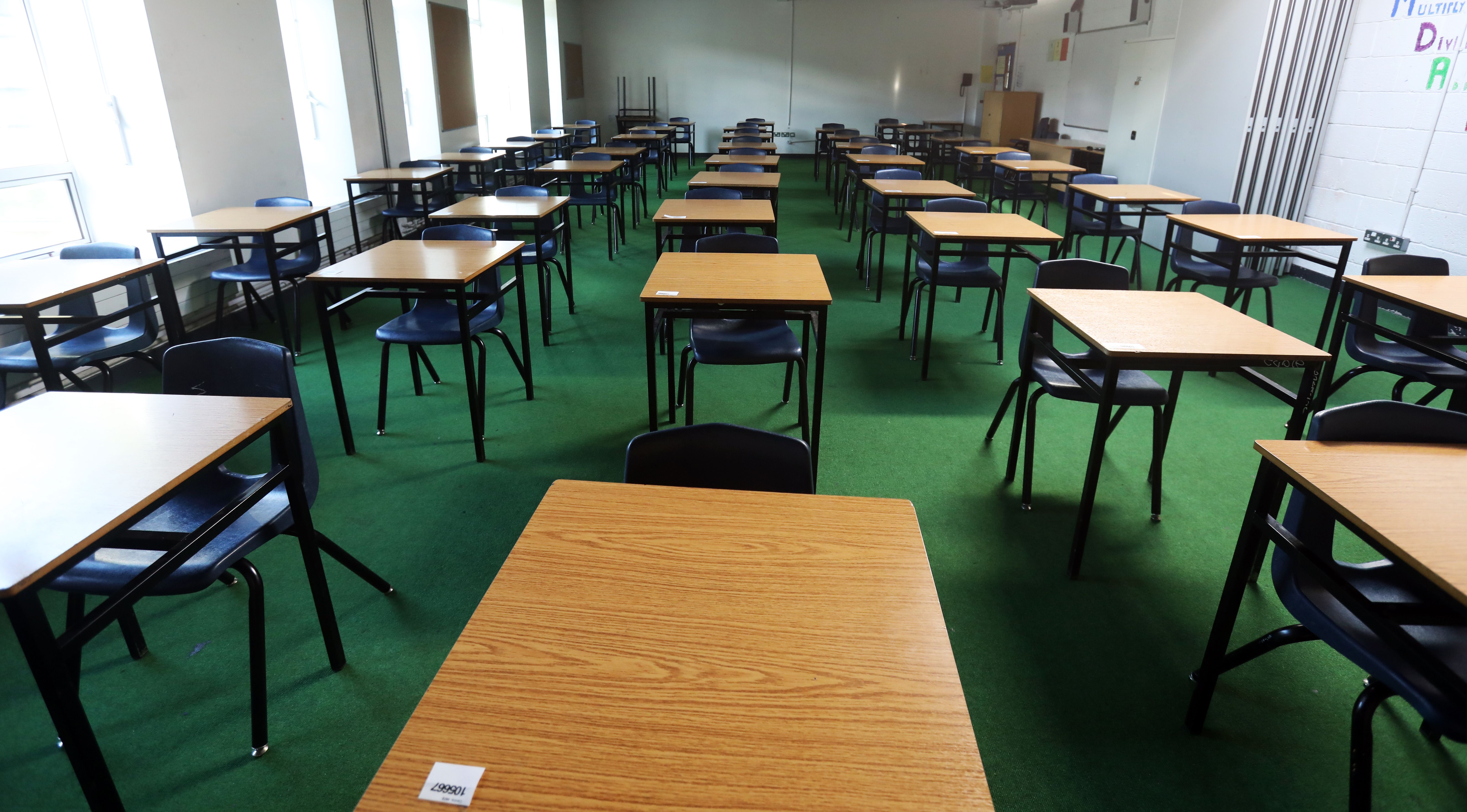THAT sighing sound you hear is not a late-summer breeze, or a parent relaxing as finally, finally their cherished children head back to school. It’s the sound of thousands of GCSE, Leaving Certificate and A-Level students the length and breadth of Ireland gasping their relief that, for better or worse, their life-defining exam torture has finally ended.
If we had to come up with a twisted system to put at the core of our children’s education, we couldn’t have done worse than the one we cling to and love: examinations. I used to supervise exams, and as I patrolled the aisles between the rows of desks, it was impossible to avoid an uncomfortable thought: these young people were all prisoners, scribbling and groaning and staring helplessly at the exam paper, and I was the prison warder. One day, I used think, we’ll all look back at GCSEs and Leaving Certificate and A-Levels, just as we now look back at a time when small boys were sent up tall chimneys and forced to clean them, or else.
Here in NEI the roots of the GCSE are to be found in what was called the 11-Plus and is now called the Transfer Test or the AQE test or the EL test. Regardless of name, they all seek to do the impossible: find out if 10- year-olds are smart enough to attend nice middle-class schools, or instead be forced to attend grubby secondary schools, where indiscipline, sagging standards and the occasional knife crime can be found. Or so they say.
But don’t examinations tell us something about the ability of pupils? Before you answer that, recall Teddy Kennedy and the Chappaquiddick bridge. In 1969 Kennedy found himself with a young woman in a car submerged in water. She drowned, he escaped. Those who supported Kennedy said it was unfair to judge the man on this incident since, if he were made President, it would be unlikely he’d be required to make quick decisions while trapped underwater in an Oldsmobile.
Likewise the 11-Plus and the GCSE/Leaving Cert/A Levels: your job in life may contain many challenges but it won’t call on you to show your ability by shoving you into a Death Row examination seat where any attempt to work collaboratively with a classmate – whisper, pass notes, signal – will mean you fail and will be cast into that outer darkness.
Here's the thing. The examination hall is as different from life as just about anything could be. And yet we lever children into these echoing torture chambers, and tell ourselves it’s good, it’ll separate the sheep from the goats.
Not true. What we’re really doing is keeping the children of the wealthy, who can afford private tutoring for the 11-plus exam, safe and separate from the great unwashed who can’t. Stephen Spender once wrote a poem titled ‘My Parents Kept Me from Children Who Were Rough’. It should be the anthem for the 11-Plus high-flyers. You might argue that it establishes the pupil’s ability in English and Maths (maybe), but it certainly ignores creative, emotional, practical skills. Most of all, it declares children as successes or failures at the age of ten, which is a monumentally stupid declaration to make.
People change. Under encouragement and in circumstances that make sense to the person, the pupil who failed the 11-Plus may well shine and find fulfilment in their lives that they’d never have been capable of, according to the 11-Plus zealots. And the same goes for GCSE and A-Level exams. Only really super-dumb people think those exams tell us anything about talent or intelligence.
Schools should be about finding out or stimulating children in different aspects of the world of knowledge. What fits one won’t fit all. Here’s the acid test: did the subject which you really loved have a teacher who was someone you admired? We respond positively to those who encourage us, not to those who threaten us. If we had schools which worked on those things that make for a happy and fulfilled life there’d be fewer schools where the teacher is exhausted and the pupils are bored witless.
Why can we not see this?






